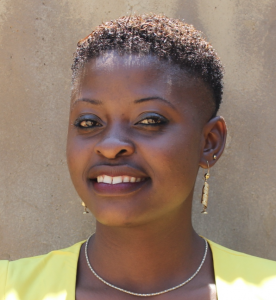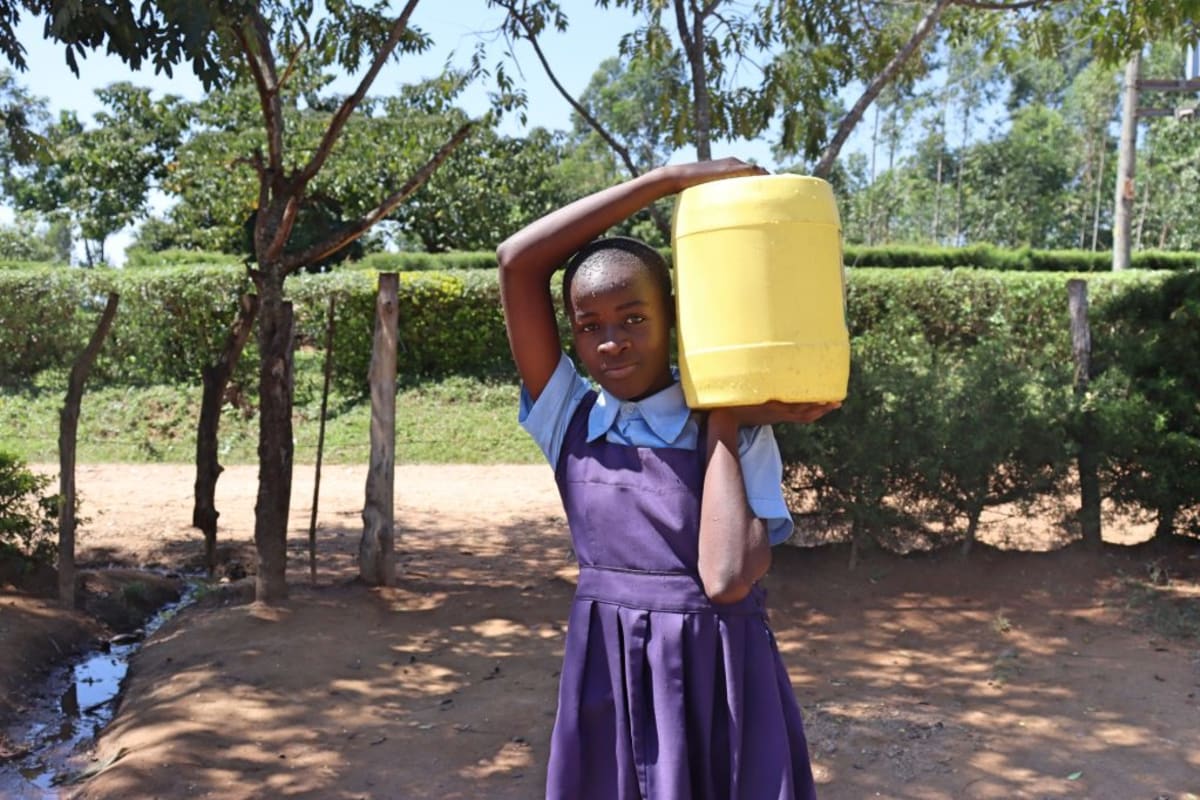Ematende Primary School began in 2009 when there was no school in the area. Since then, the school population has boomed to 805 students and 19 staff.
The students and staff at the school all rely on a hand-dug well for the water they need for drinking, cooking, and cleaning, but it is only truly useful to them during the rainy season when the water table is high, because the well is too shallow to reach the region's receding water table. For the rest of the year, everyone wastes a lot of time attempting to collect water from the well, which has little water to offer.
Students arrive early to school and get in line at the well, waiting for a turn to collect water. The process is slow and arduous. The long lines mean they miss valuable class time, and their academic performance suffers as a result.
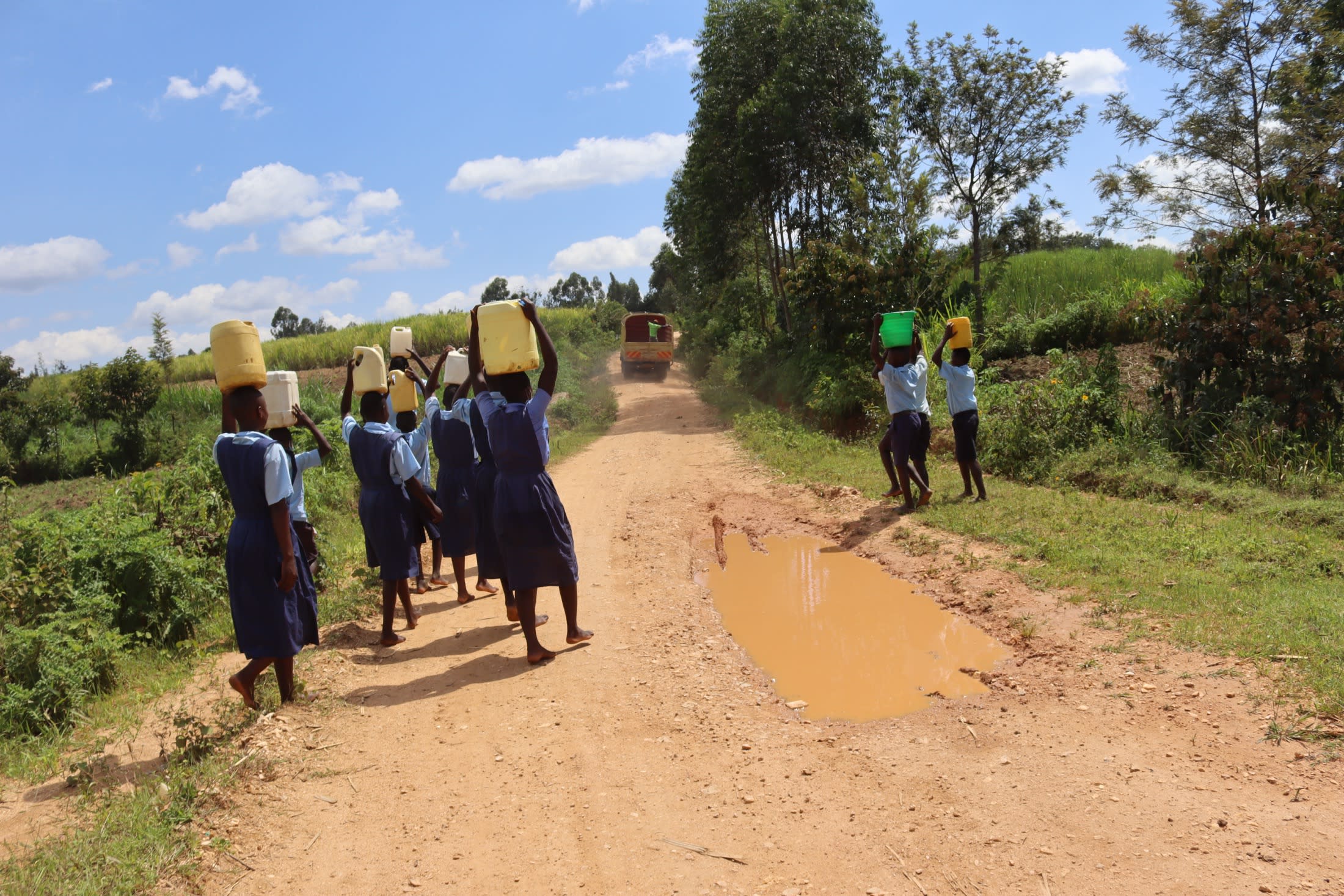
When the well is without water, and the tiny rain tank on the school campus has no water, especially during the driest time of the year (January through February), students must fetch water from a nearby stream. To do so, they must walk a busy dirt road, dodging speeding motorcycles and large trucks, risking serious injuries.
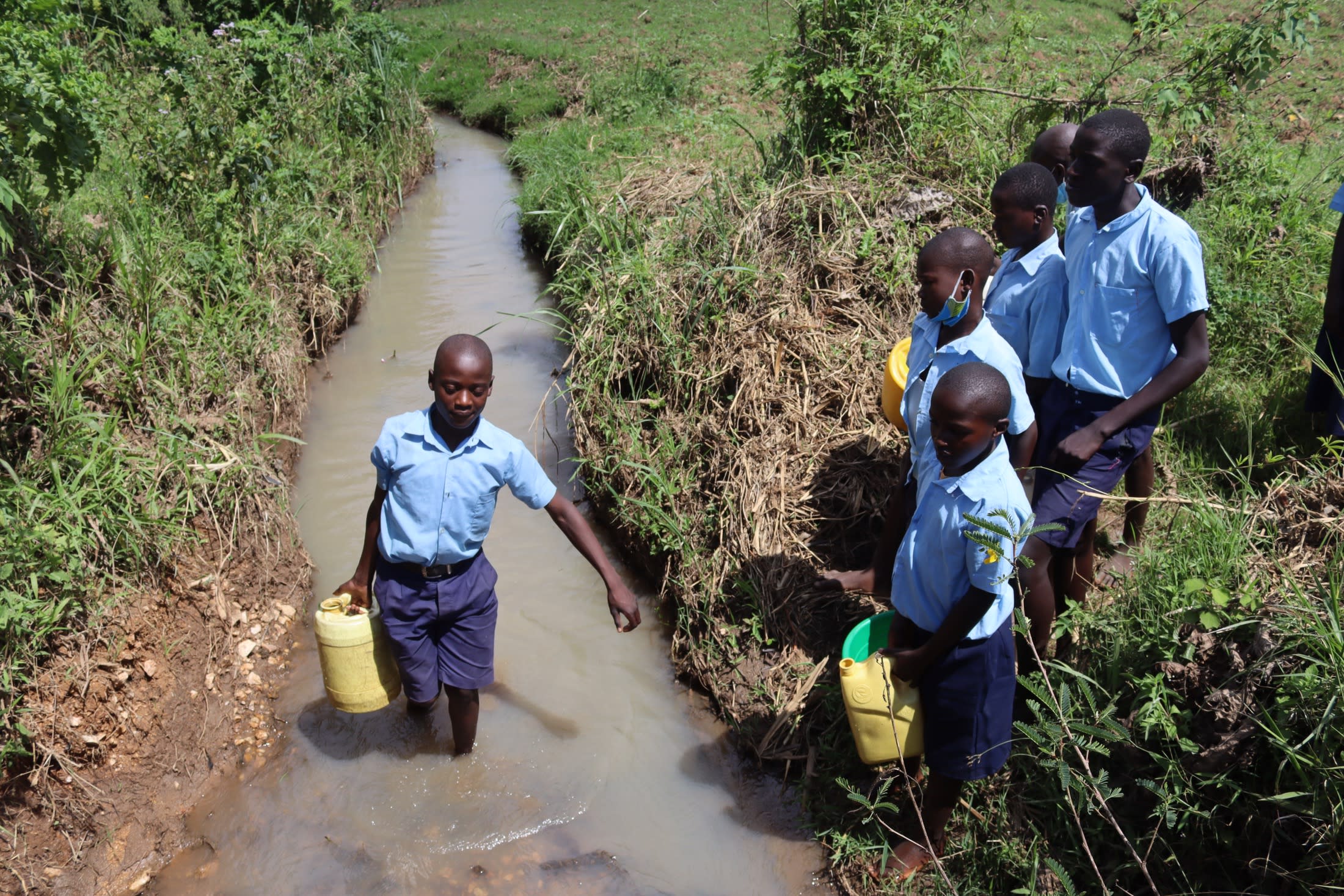
Once they reach the stream, they stand in the brown and murky water to dip their collection containers below the surface to fill. After collecting water, they make the dangerous trek back to the school once again, this time carrying a heavy container full of water.
The stream provides water, but it is unsafe and contaminated, leading to water-related illnesses for those drinking it, like persistent diarrhea and stomachaches. These illnesses have lasting effects, causing students to miss school and fall behind academically. Families struggle financially from paying for reoccurring hospital visits.
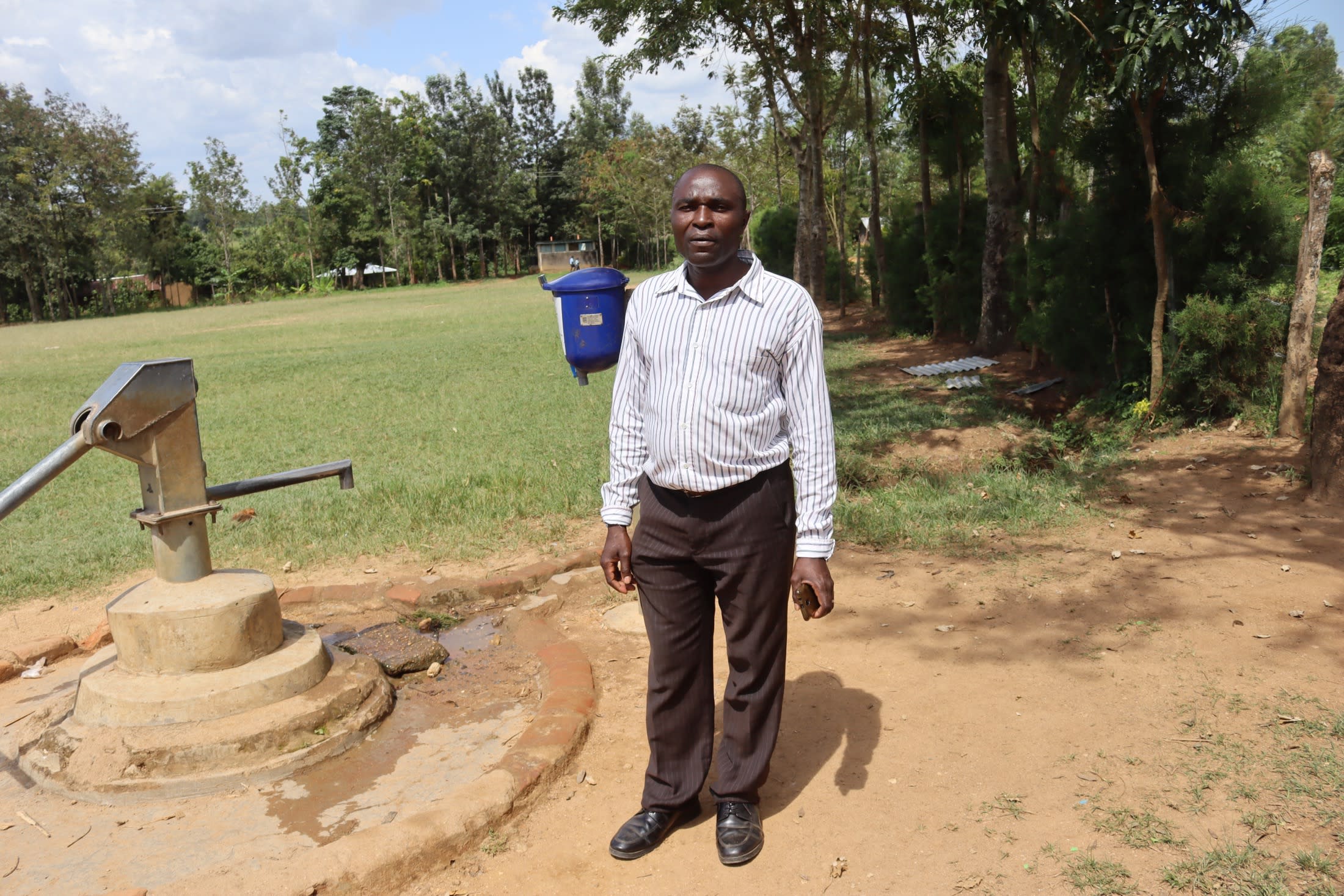
Teacher Stephen Arunga (standing near the hand-dug well), 45, shared, "Most of the pupils spend most of their time hospitalized. This also delays their timely completion of the syllabus, thus adding to their poor performance in academics."
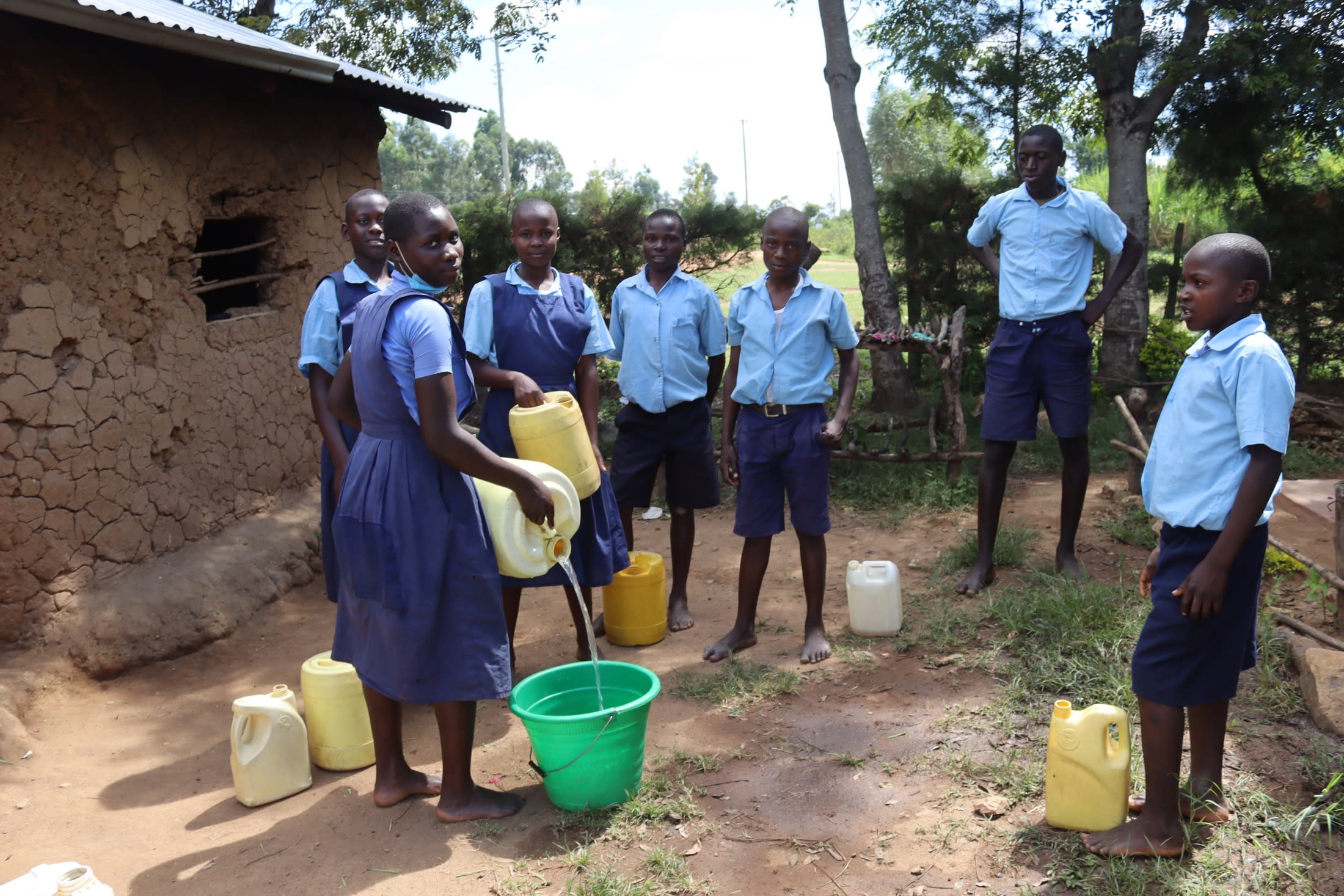
"Clean water unlocks great potential in our lives as pupils. When one is absent, the teacher does not have time to recap what was taught, and this is a very big loss. Those that cannot afford to go to the hospital mostly get out of school when sick, go home, stay there for [a] few days, then they come back. This cannot make us perform well in our academics," said Margaret A.(in the photo above pouring water into collection containers), 15.
Like Margaret commented, clean water can unlock significant potential in students' lives. This new well will enable students to focus on learning and dream about the future rather than suffering constant illnesses limiting their potential.
What We Can Do:
New Well
We conducted a hydrogeological survey at this school and the results indicated the water table beneath it is an ideal candidate for a borehole well. Due to a borehole well's unique ability to tap into a safe, year-round water column, it will be poised to serve all of the water needs for this school's large population, even through the dry months.
The school will help collect the needed construction materials such as sand, rocks, and water for mixing cement. They will also provide housing and meals for the work team, in addition to providing local laborers. We will complement their materials by providing an expert team of artisans and drilling professionals, tools, hardware, and the hand-pump. Once finished, water from the well will then be used by the school's students and staff for drinking, handwashing, cooking, cleaning, and much more.
Handwashing Stations
There is currently nowhere for students to wash their hands after using the latrines or before eating lunch, let alone the water to do so.
The student health club will oversee the two new handwashing stations we will provide, and make sure they are kept clean and in working condition. The club leaders will fill the handwashing stations with water daily and make sure they are always supplied with a cleaning agent such as soap or ash.
VIP Latrines
We will construct two triple-door latrine blocks using local materials that the school will help gather. Three doors will serve the girls and three doors will serve the boys. All of these new latrines will have cement floors that are designed to be easy to use and to clean. And with a borehole right on school property, there should be enough water to keep them clean.
Training on Health, Hygiene, COVID-19, and More
We will hold a one-day intensive training session with students, teachers, and parents. This training will cover a wide range of topics including COVID-19 symptoms, transmission routes, and prevention; personal and environmental hygiene; and the operation and maintenance of the borehole, latrines, and handwashing stations. There will be a special emphasis on handwashing.
Our team of facilitators will use a variety of methods to train, including participatory hygiene and sanitation transformation, and asset-based community development. We will initiate a student health club, which will prepare students to lead other pupils into healthy habits at school and at home. We will also lead lectures, group discussions, and provide illustrative handouts to teach health topics and ways to promote good hygiene practices within the school including handwashing and water treatment. We will then conduct a series of follow-up trainings before transitioning to our regularly scheduled support visits throughout the year.
We and the school strongly believe that all of these components will work together to improve standards at this school, which will help lead to better student academic performance and will help unlock the opportunity for these students to live better, healthier lives.

 Borehole Well and Hand Pump
Borehole Well and Hand Pump
 Rehabilitation Project
Rehabilitation Project












